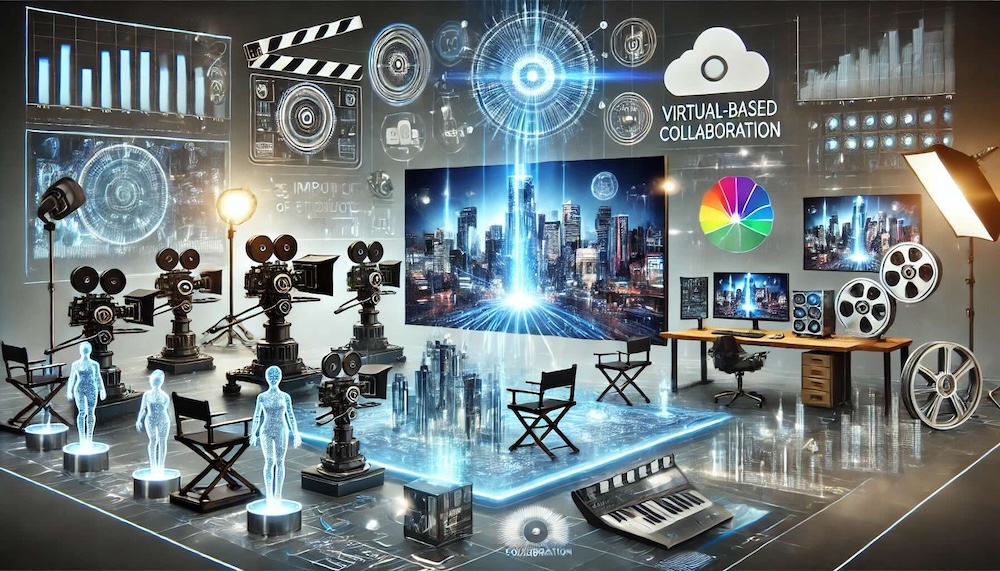1. Artificial Intelligence: Enhancing Creativity and Efficiency
Artificial intelligence is one of the most groundbreaking technologies impacting entertainment production today. AI algorithms assist in scriptwriting, analyzing trends to identify popular themes, and even generating storyline suggestions. By processing vast amounts of data, AI enables creators to tailor content to audience preferences, increasing the likelihood of a successful production.
Beyond content creation, AI is also used in visual effects (VFX), automating tasks such as rotoscoping and background replacement. This not only speeds up production but also reduces costs, making high-quality content accessible to a wider range of creators.
2. Virtual Reality (VR) and Augmented Reality (AR): Immersive Storytelling
Virtual reality and augmented reality are revolutionizing the way stories are experienced. VR places audiences inside the story, offering an immersive experience that goes beyond traditional viewing. Imagine walking through the scenes of a movie or interacting with characters — VR makes it possible.
Augmented reality, on the other hand, overlays digital elements onto the physical world, allowing viewers to interact with content in a more personal and engaging way. These technologies expand the boundaries of storytelling, making audiences feel like active participants rather than passive viewers.
3. Cloud-Based Production: Enhancing Collaboration
The shift to cloud-based production has transformed the way entertainment teams collaborate. With the ability to store and share files in real-time, teams can work together from different parts of the world seamlessly. This is particularly beneficial for large productions with extensive teams handling everything from sound design to special effects.
This technology enables creative teams to collaborate globally, bringing together diverse talents and perspectives that enrich the stories told, allowing for a faster and more efficient production workflow.

4. High-Resolution Filming: Redefining Visual Quality
Advancements in camera technology have enabled filmmakers to shoot in ultra-high resolution, providing stunning visuals that captivate audiences. With 4K and 8K cameras becoming more accessible, the visual quality of films and series is reaching new heights. High-resolution filming, combined with advanced editing software, allows for breathtaking visuals with enhanced color, clarity, and detail.
5. Streaming Platforms and On-Demand Content: Changing Audience Expectations
The rise of streaming platforms has fundamentally changed how content is consumed, shifting the focus from traditional broadcasting to on-demand viewing. This change places more control in the hands of viewers, who can now watch content whenever and wherever they choose. Streaming technology has also enabled niche content to find dedicated audiences, allowing creators to experiment with diverse genres and styles.
Conclusion
Technology is transforming every aspect of entertainment production, from how stories are created to how they are experienced. At Alara Entertainment, we are excited to be part of this evolution, leveraging technology to push the boundaries of storytelling and bring fresh, innovative content to our audience. With advancements like AI-driven insights, VR experiences, and high-quality streaming, the future of entertainment looks brighter and more immersive than ever. We remain committed to using the latest tools to craft stories that resonate and inspire.
Last Updated on 12, November 2024 by admin | Published: 12, November 2024



